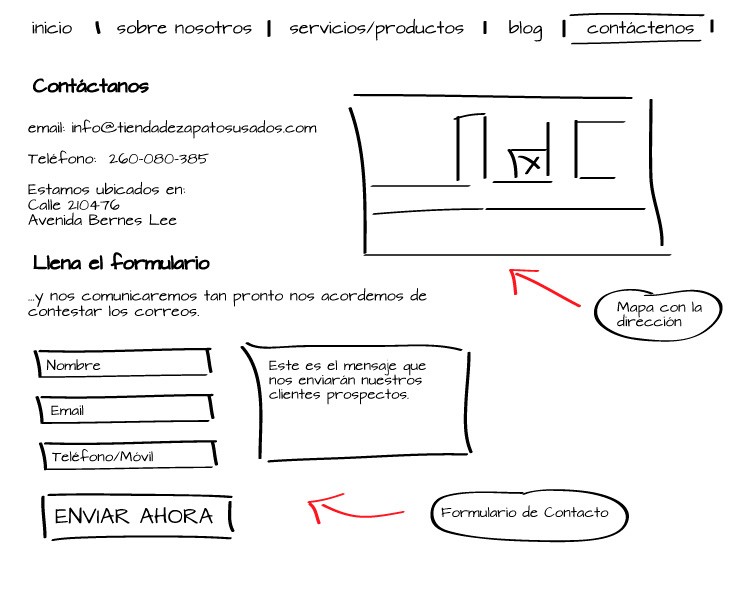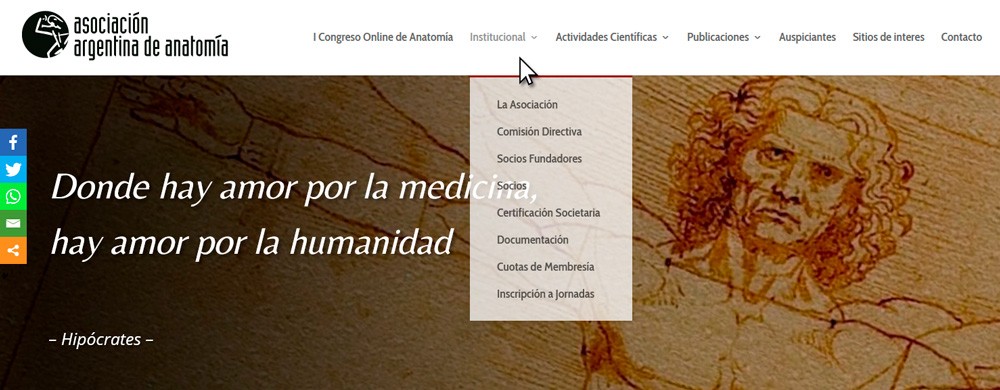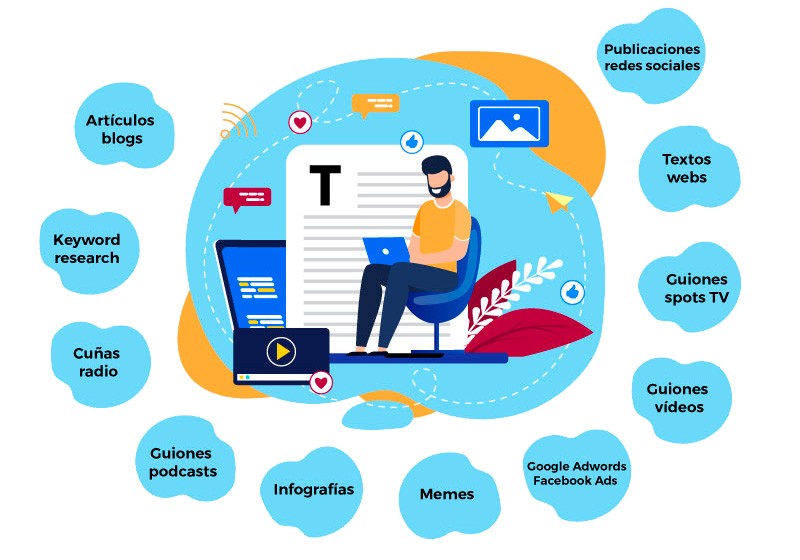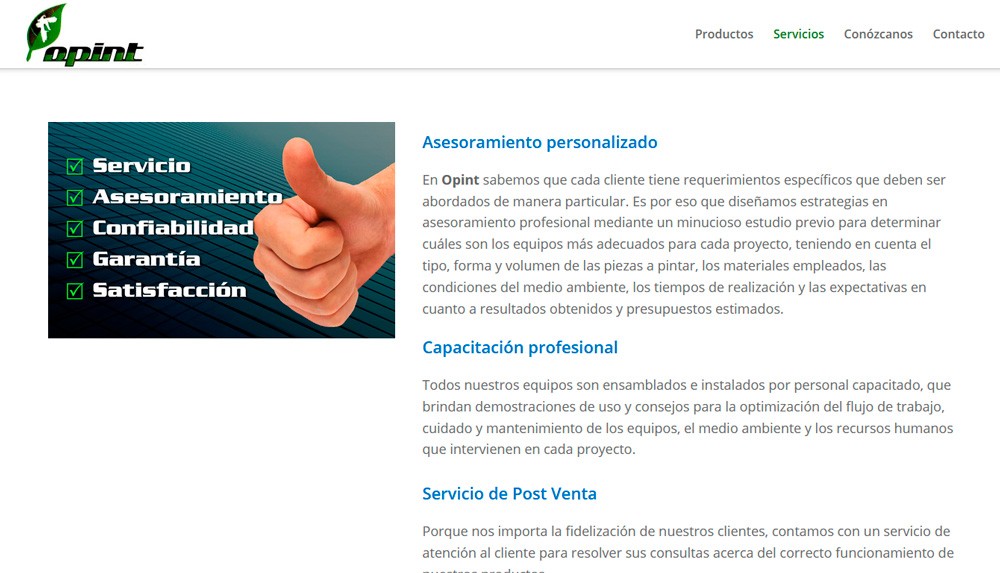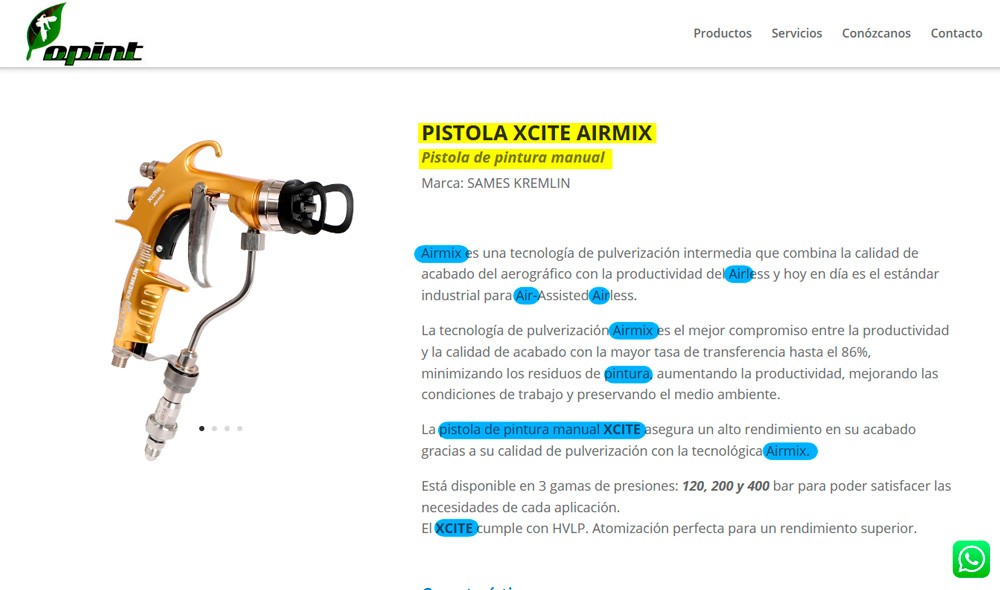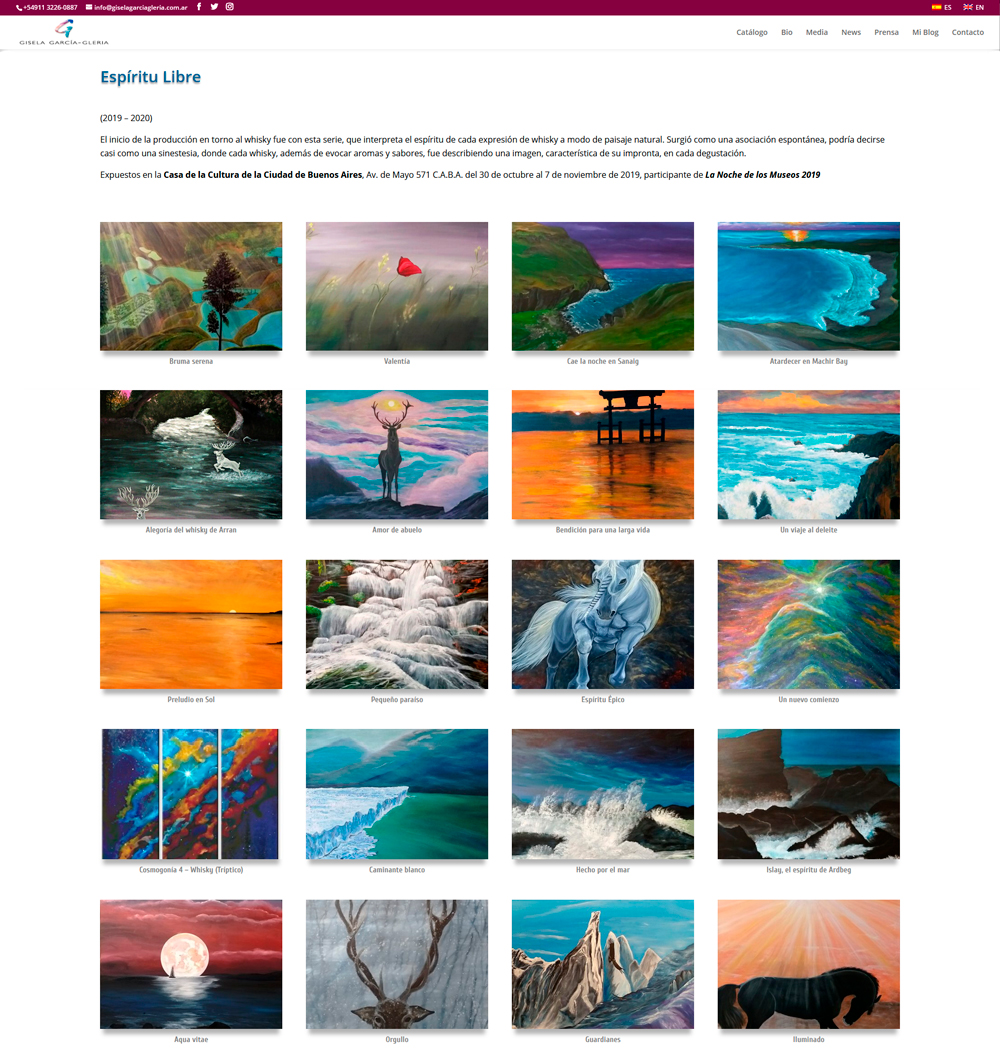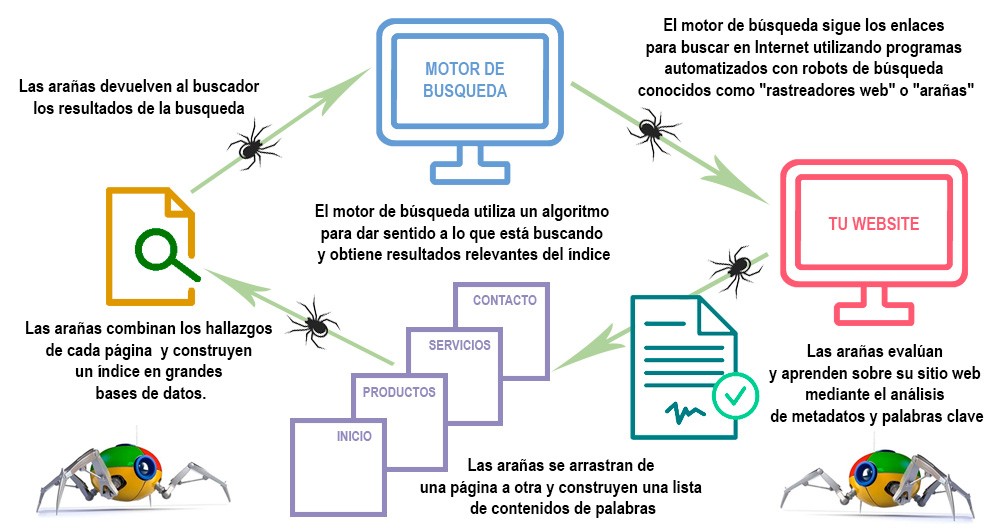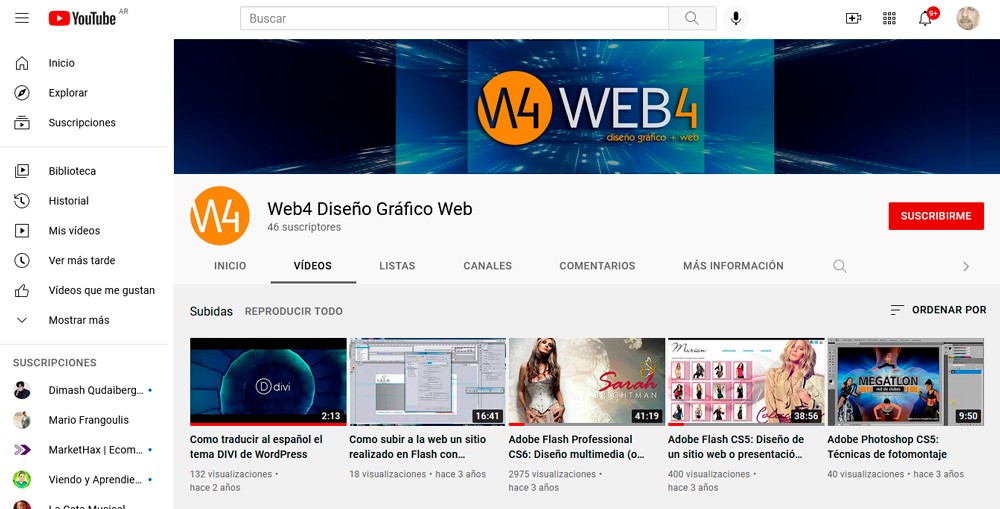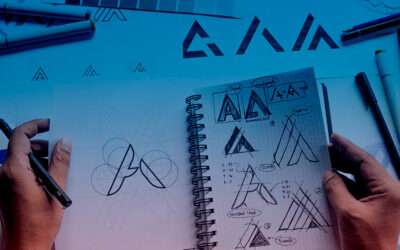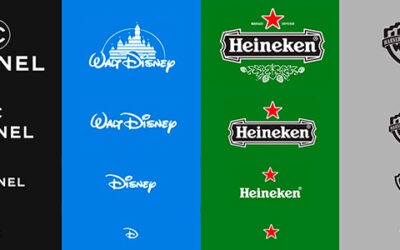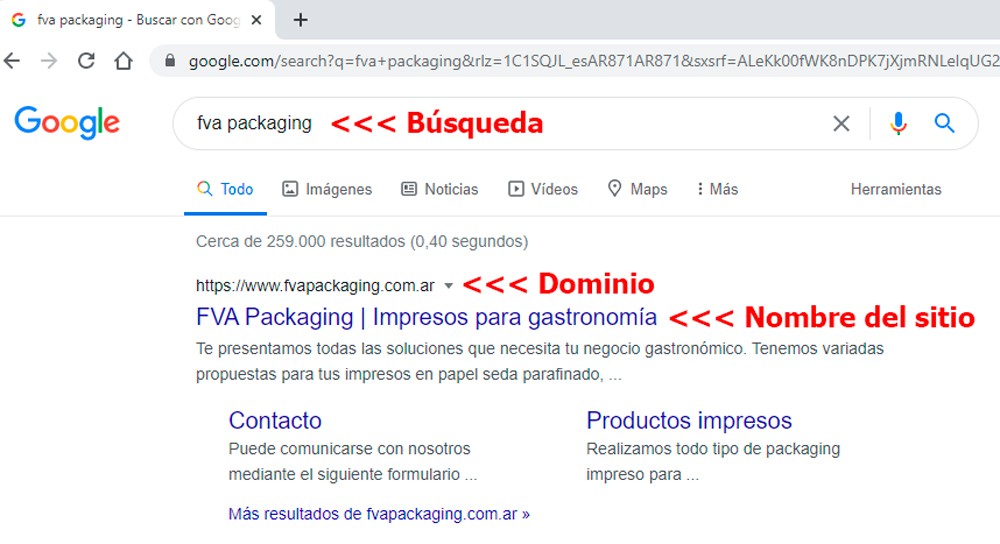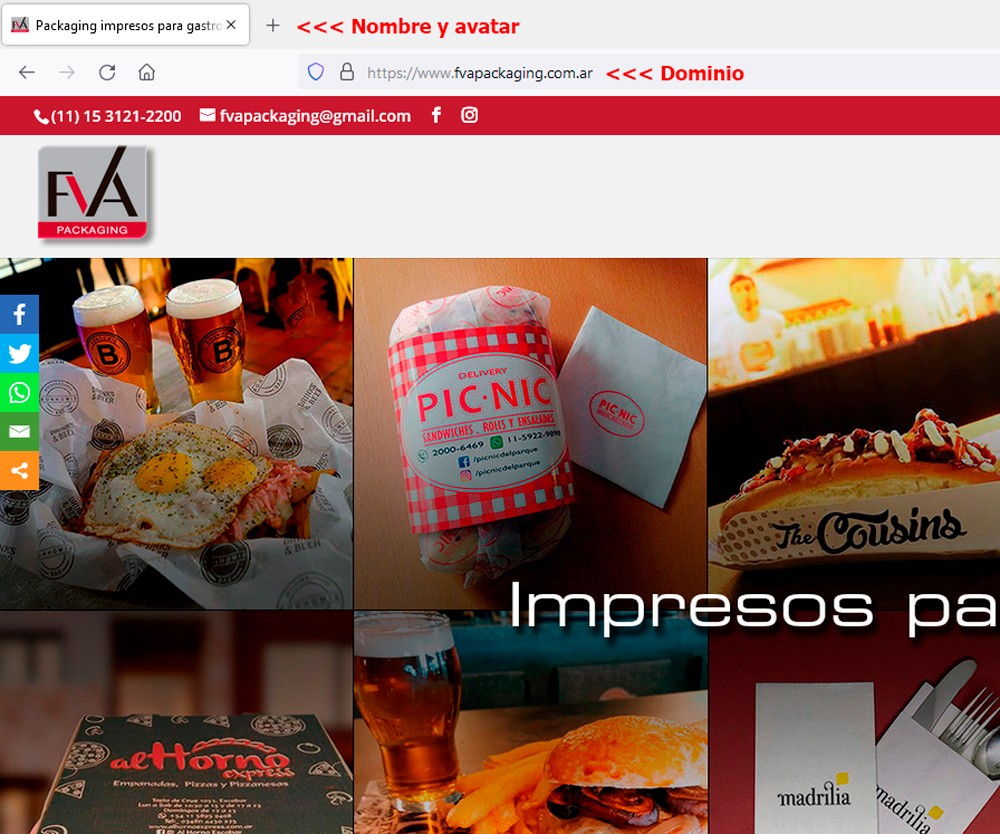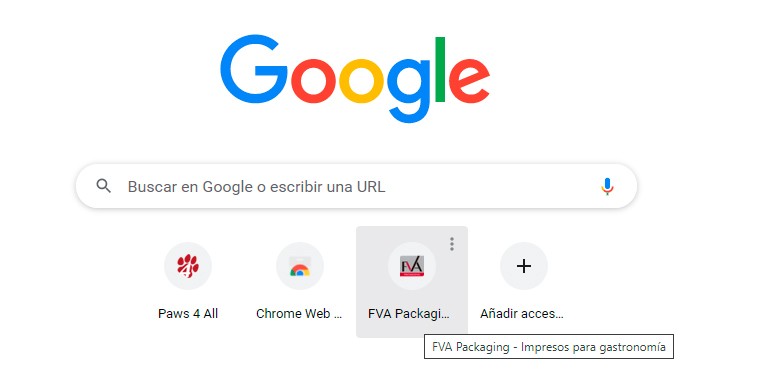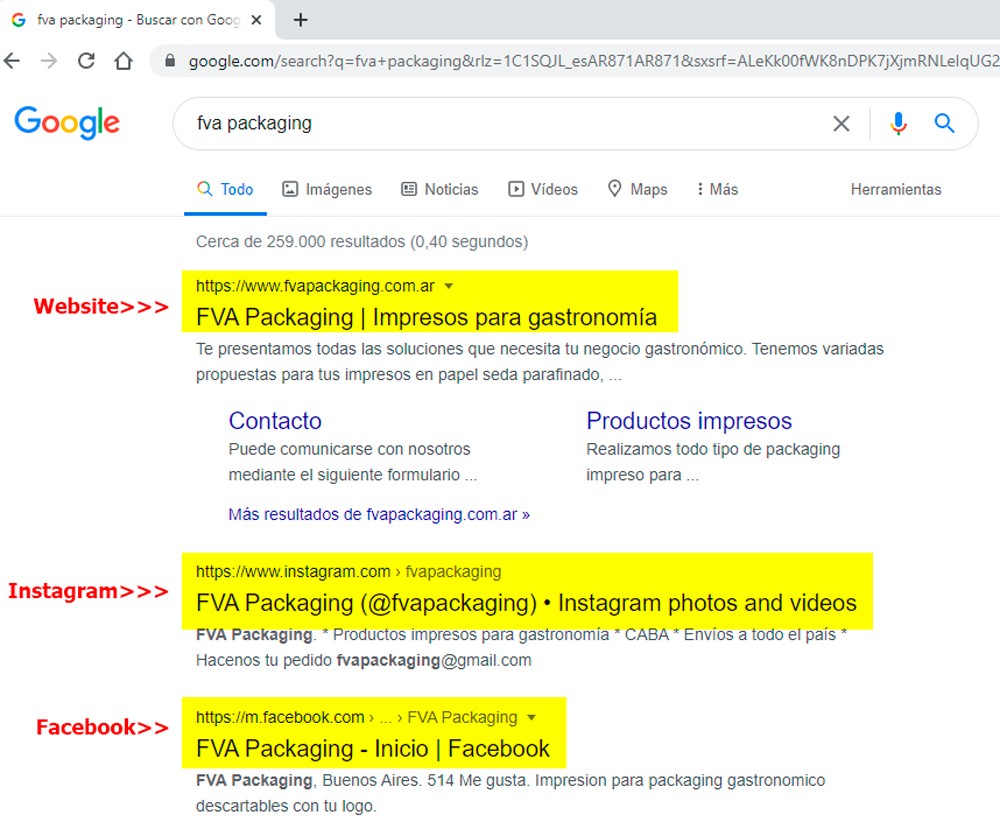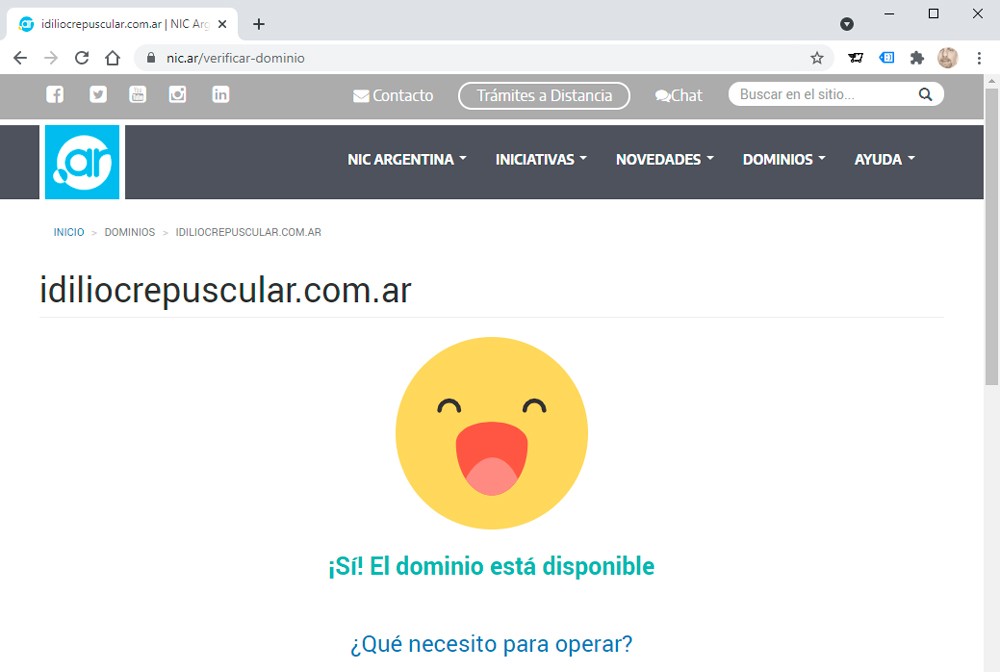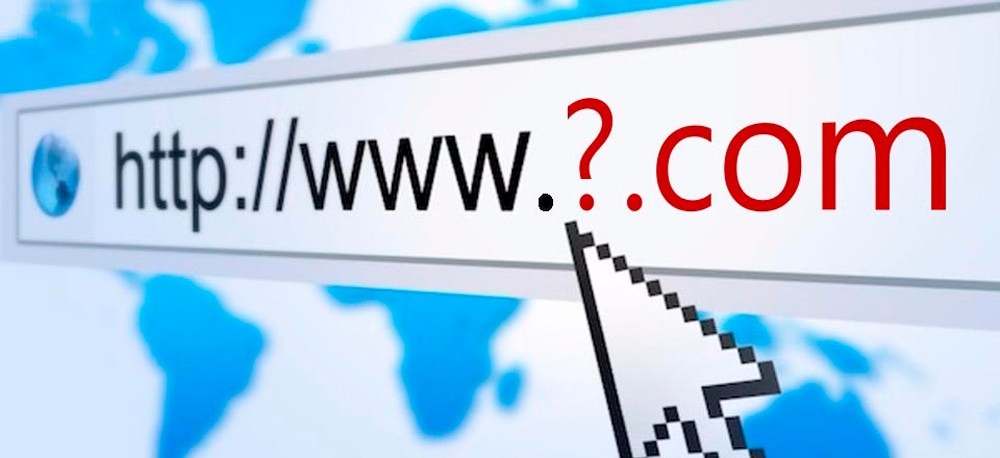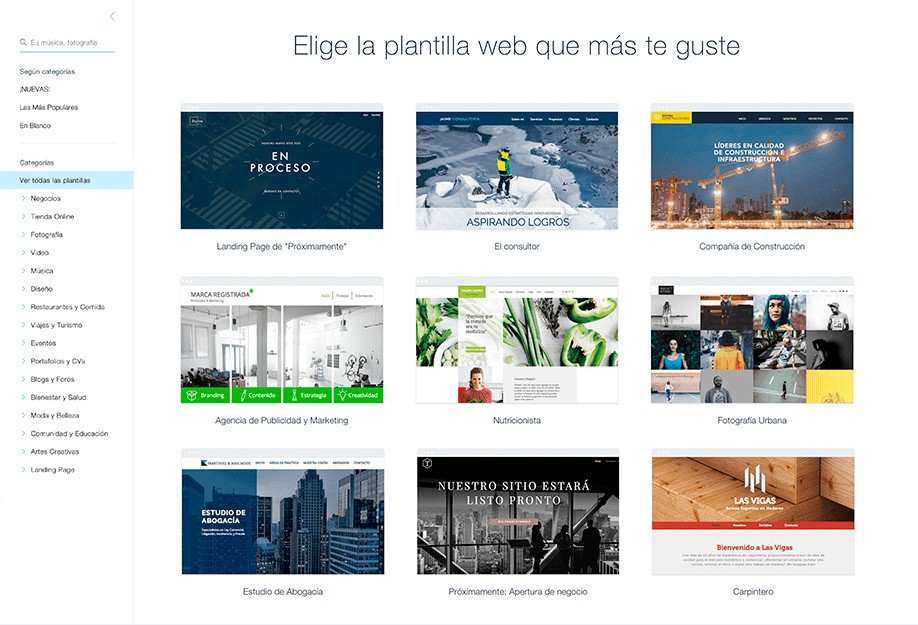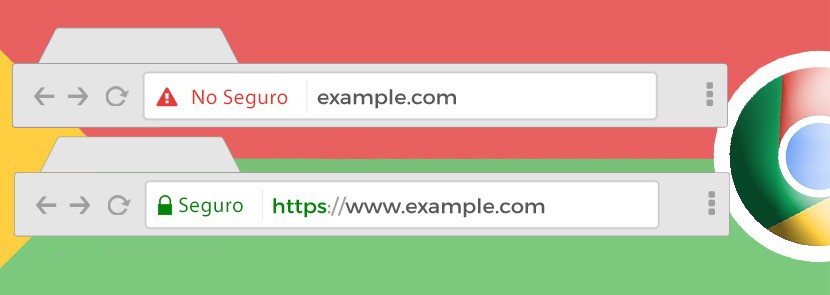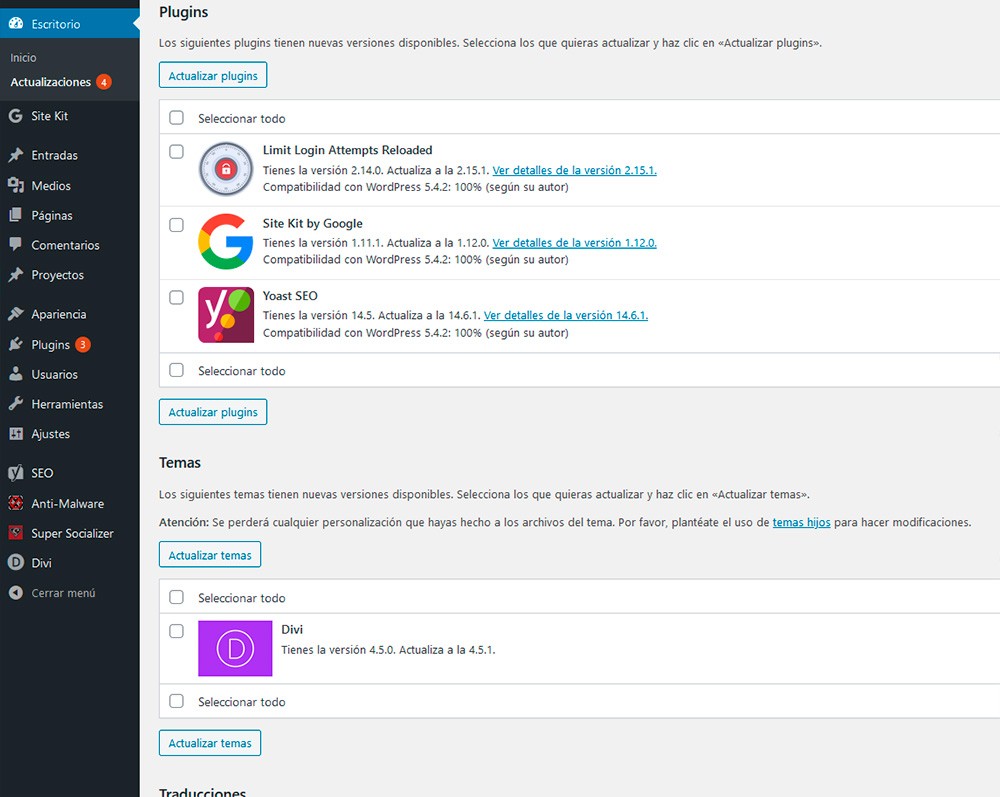In this post I want to tell you about the differences between Rebranding and Restyling, and the importance they have when redesigning a brand, with examples from specific personal experiences with some of my clients. I will also show you how through this I can help you...
How to start a website design
In this post I will show you how to start the design of a website.
You will know the steps to follow in the development and how you should collect the information of the contents to present them to your webmaster.
Once you have met the Requirements for have a website that I explained to you in my previous article, you will be in a position to move forward to make your website concrete
You may not know where to start and that is why I present you an organization guide that you can follow very easily.
Responsive website
Make sure your designer develops a responsive website, also called responsive web design, adaptive web design or responsive web.
This is a web development standard whose objective is to adapt the appearance of the pages to the device that is being used to visit them .
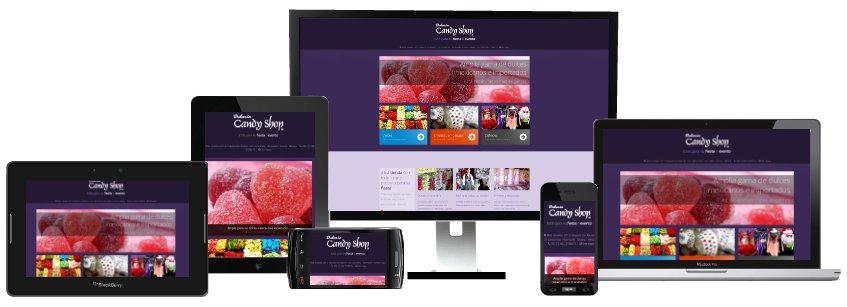
Today web pages are seen on a multitude of devices such as tablets, smartphones, e-books, laptops, PCs, etc.
In addition, each device has its specific characteristics: screen size, resolution, CPU power, operating system or memory capacity, among others.
In addition, each device has its specific characteristics: screen size, resolution, CPU power, operating system or memory capacity, among others.
Google requires that sites be responsive to be indexed in their search engines, so if your website is not, you are left out ...
The following image shows a display scheme on a phone between a non-responsive and a responsive site, where the prioritization of readability is observed.
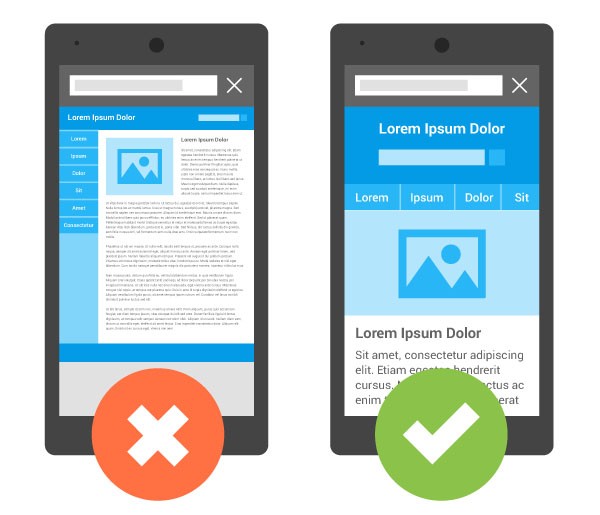
What information should you provide to your webmaster?
You need to know in advance what you want to communicate and show through your website.
What are the values you want to convey, what target audience are you targeting, who are your competitors and what image do you want to show about your business, activity, or your own person.
You should take a prior time of analysis, which will allow you to "filter" the contents of your website, define the aesthetics and essence of your project, and also at the level of language that you will use in the texts and images.
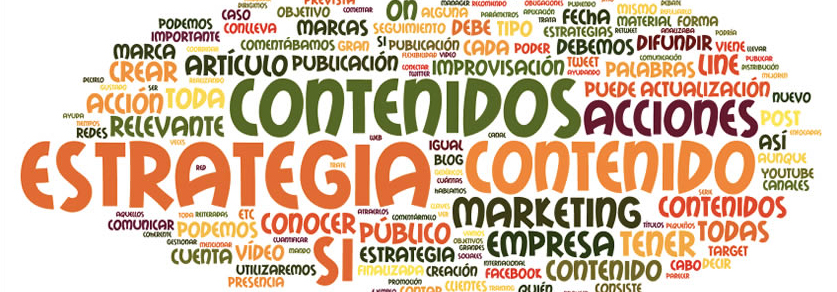
Observe your competition
Surely you are not the only person or company in the world that carries out a certain activity and wants to show it on the web.
I advise you to see similar sites of your possible competitors, and make a list with the web addresses of their respective sites.
This is not to imitate or copy them, but to "innovate" communicational concepts and obtain a better result.
Innovate means "improve what already exists" to obtain a new quality standard.
The following image shows different websites of companies in the "openings and enclosures" category in Argentina.
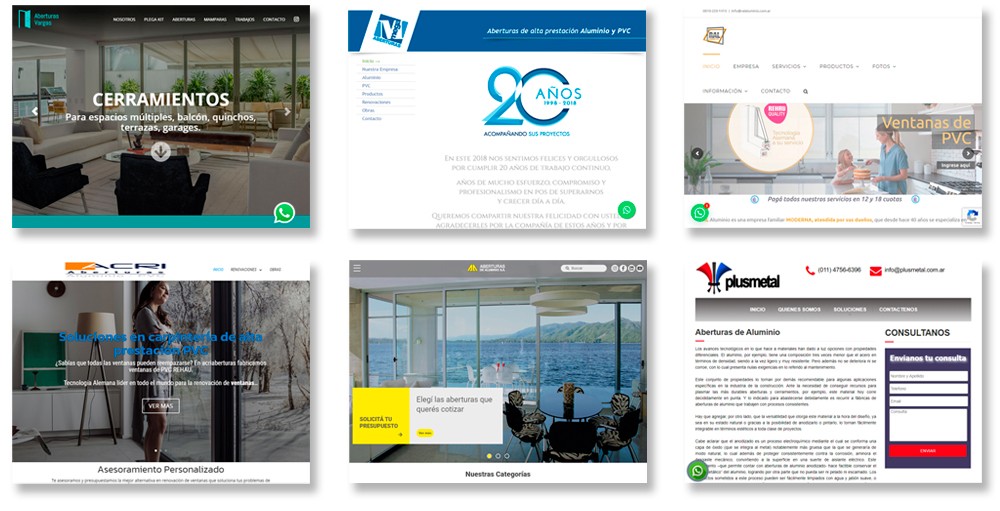
Each web development requires a prior analysis to obtain a “know-how” (knowing how to do something).
That is why we assume that each site you have visited has already done it previously (good or bad).
This allows you to take already tested starting points and adapt them to your own identity and needs.
Performing a criticism and evaluating the successes and failures of your competitors will allow you to optimize the results you are looking for.
Do not forget to always consult your webmaster about the content, since he will surely have much more experience than you and will know how to advise you correctly.
Collect information for your website
This may be perhaps the most complex part for you, as it requires your participation and teamwork with the webmaster.
Do not be discouraged if you do not know how to start, since many times it is very difficult to talk about yourself .
But do not try to delegate all the work to your designer, since he does not know your history, your company, your goals, or your ideas.
In that case I suggest you tell him your needs so that he can draw up an organization chart and they can solve each stage of web development together.
Once you have passed this initial stage, everything will be on track and your participation will be minimal.
Next, I show you some items that you should have before ordering your website.
1. Organizational structure of the website (Sections)
Your website must be divided into sections to facilitate online browsing and organize the contents.
These sections have very general themes, so that the user can find them easily.
They tend to be quite similar on all websites, and it is good that they are, since users are used to these structures.
Depending on the type of site you have, a basic organization could be the following:
- Home Page: Presentation, welcome, general description, offers, promotions, etc.
- About (Institutional): Who we are, Professional Staff, History, Mission, Vision, etc.
- Services: Description of services offered to the client.
- Products: Product catalog with specific descriptions.
- Publications: Dossiers, brochures, magazines, etc.
- Media: Photo and / or video galleries
- Agenda of activities: Events, presentations, etc.
- News: Launching of new products, services, offers, promotions, etc.
- Tidings: Related to your activity or your market.
- Press and Communication: Press releases, gazettes and flyers in graphic, radio, web and TV media.
- Social media: Access to social networks. All content can be shared directly from the website.
- Blog: Informative or thematic posts, outstanding information for clients, etc.
- Customer service: After sales service, technical advice, etc.
- Downloads: Allows the user to download documents, publications, audios, videos, spreadsheets, etc.
- Contact: Contact modes, telephones, mail, form, geolocation through Google Maps and QR code.
- WhatsApp Chat: Allows you to chat directly from the website using an always visible button.
Each section forms a separate page within your site that can contain one or more related topics.
I suggest you keep the section titles very short, as these define the names of the main menu buttons.
The following image shows the main menu with the sections of the site, and a drop-down menu for related sections.
2. Textual information
It is very important that you spend some time writing the texts that describe your business or activity that you will include on your website.
It will depend on them whether your site is found in content search engines such as Google.
If you really want to have content effective on your website, I advise you to hire a "copywriter" service, a professional dedicated to writing persuasive texts to capture the interest of your users.
You will know translate the textual information for your site and social networks into the correct words, and get the best out of it aimed at promoting SEO.
General descriptive texts
Even if you do not hire a copywriter and decide to write your texts personally, I advise you to do it consciously and with criteria.
The descriptive texts will define each section of your website that you have created in the previous item.
I advise you to be short and concise. Do not go too long in telling your whole story unless you think it is essential.
People do not have time to read texts that are too long, especially if they view them on mobile devices.
These texts should not include more than one or two subtitles and a few short paragraphs with generalized information.
In this way, you are showing the user a quick-read overview of what they can find on your website, and invite them to find more detailed information in other specific sections of the site.
Make sure you use language that is clear and without too many technicalities, that it is not boring and that can be understood by a wide section of the community.
Content or informative texts
Unlike descriptive texts, content or informative texts should be longer, detailed and detailed.
They can contain specific technical concepts and a more appropriate language if you consider it necessary.
These texts are aimed at a more selective target that has the need to obtain precise information about a particular topic.
They can be included in the blog section, product details, modes of use, technical information, etc.
The texts must include phrases and keywords to promote SEO and it is very important that you consider this concept from the beginning of the work.
These key phrases or sets of words are what users type in a search engine like Google to obtain results and thus access your own content, so you should think about them "from the user's point of view" more than from your own gaze.
All texts must be delivered in digital format (Word or similar) already written, corrected and in their final extension, and may be reviewed and corrected by the webmaster to optimize SEO.
The following image shows the technical description of a specific product on a catalog page.
Texts in yellow represent SEO key phrases (words that a user types in Google when performing a search)
Texts in light blue indicate the results obtained by the search engine according to the relevance of those keywords.
This is the reason for the meticulous writing of the contents oriented to favor SEO.
3. Images and Videos
I advise you to include photographs, graphics and videos of your activity, company, products or services among the aforementioned texts.
Photographic and multimedia images (video and audio) are very important for the composition of your website.
It is boring and tedious for the user to read large extensions of texts without the presence of descriptive images.
I suggest that you always use good quality original photos of your own.
You can also use images obtained from the web that are not subject to copyright , since you could face legal claims from third parties.
The fact that you can download photos free from the web does not mean that you have the right to use them freely.
Make sure to check the copyright-free use of images.
There are several sites that allow you to download these types of images for free, and they are identified as such.
The following image shows original artworks by an Argentine plastic artist on her own website.
The professional glance of the seasoned photographer
Try to hire a specialized photographer, who will have a much more effective and professional look to show your work in the best way and create good original content.
If you do not want a professional, try to take your own photos with the best possible quality and taking into account the context and the environment.
Avoid seeing unnecessary elements in the background and always taking care of lighting and framing.
I always advise my clients that once they have their website, they obtain quality visual content of their activities, production, events, etc.
This will be very useful for your website and your social networks.
Read my article How to get the best return on photos of your products to learn more about photography for the web.
Photo nomenclature
In order to facilitate the work of your designer and favor SEO, I suggest you name the digital files in a logical and concise way, for example: smartphone-samsung-galaxy-s10-black.jpg
Never leave the default name as it comes out of the camera (ex. Pic0024585.jpg)
Your designer does not know your content and Google does not like those names and ignores or penalizes them.
All images must be delivered in digital format (JPG or PNG) in good resolution and size.
Logos are preferred in vector format (AI, EPS, CDR or similar) or in its default in high resolution JPG or PNG.
4. Content optimization for SEO
As I mentioned before, SEO (Search Engine Optimization) consists of the conscious and strategic optimization of the textual contents of a website so that they can be recognized by search engines such as Google.
It is an additional service to web design but absolutely necessary and I recommend you not to do without it.
All content will be configured using keywords and textual definitions that favor the intelligent performance of searches.
For this reason, the designer is likely to adapt the wording of the texts to these requirements.
This does not imply the application of online marketing strategies or advertising campaigns through sponsored links on Google.
Read my post How to improve SEO on your website for information and tips on optimizing your website.
The following image shows an outline of how a content search engine like Google works.
5. Social Networks
It is important that your company or enterprise has in addition to the website, its profiles and channels in social networks, and that these have the same criteria of design, aesthetics and communication.
Having social networks multiplies the possibilities of visualization and presence of your website.
All the contents of your website can be shared directly on all social networks with a single click, allowing access to your pages from the same posts.
In the following image we can see how to share a page on Facebook from a website and the result obtained.
Note that the posting refers directly to the website, so that clicking on it redirects the user to the website of origin.
If your website includes videos, I advise you to previously upload them to your own YouTube or Vimeo channel and not to third-party channels, since they will favor user traffic to those channels and not yours.
I recommend that you hire a good «community manager» capable of creating their own and original content on your social networks, taking care of the aesthetics and maintaining the graphic coherence of all your publications, to favor your institutional presence.
6. Google My Business
If your website has customer service and a postal address, I advise you to have a Google My business profile, where you can define days and hours of attention and geolocation using Google Maps , which will provide you with new access channels to your website and will facilitate your SEO positioning.
You will also be able to integrate geolocation to your social networks and your followers will be able to add your location in your posts.
The use of maps helps a lot to locate your web oriented in geographical areas and they are very effective on mobile devices (phones and tablets)
7. Web content updates
Finally, I advise you to always keep the content updated, remove obsolete information, renew images and add new sections of content.
This will make your visitors feel attracted to your site, they will return periodically and your site will grow.
There is nothing more negative for users than returning to a website and always seeing the same thing. That speaks of stagnation, a tedious routine, a lack of creativity and motivation.
And not only will your users get bored and won't come back. Google will also lower your ranking and your SEO, since its "spiders" will stop indexing your site by not registering updates and it will not be considered relevant for the results of their searches.
Final conclusion
I hope you enjoyed this article and found it useful.
Now you know everything you need to have in order to start your website and how to approach a project with your webmaster
If you wanted to have your website and you consider that I am a suitable professional, do not hesitate to contact me and I will advise you with great pleasure.
In the Related Articles section below, you will find many articles with specific topics that complement the one you just read. Thank you!

Adrián Pablo Conti
I am a Graphic and Web Designer graduated from the University of Buenos Aires (FADU-UBA)
Since 1993 I have run Web4, my own freelance graphic and web design creative studio, located in the City of Buenos Aires (Argentina)
Me I specialize in the development of visual identity, institutional communication, web sites and online stores, editorial design, catalogs, magazines and packaging design, among others.
Visita mi website www.web4.com.ar
Let Share:
Related Posts
Rebranding: The importance of redesigning a brand
Why have a real estate website
You've probably wondered why you should have a real estate website if things have gone quite well with your business premises so far, or perhaps you don't have enough information to encourage you to start a new virtual business. In this article I'm going to show you the...
Benefits of having a website for your real estate agency
Do you want to launch your business in the online real estate market? In this article I want to tell you about the features, possibilities and advantages of having a professional website for your real estate business, which you can take advantage of to launch with...
How to add products into a Dropshipping online store
In this post I will show you how to add products in a Dropshipping online store from AliExpress. I will also give you some tips to choose good suppliers and products, and how to edit and publish them to optimize your online store. This is the fourth and ...
How to create an online store for Dropshipping
In this post I will show you how to create an online store for Dropshipping, what features it has, how it works, and the main differences with traditional stores. If you read my previous articles, what is Dropshipping? and How to start your business from ...
How to start your Dropshipping business
In this post I will show you how to start your Dropshipping business through a list of simple steps that you could easily follow. If you read my previous article, what is Dropshipping? you already know the basic concepts to encourage you to this new project ...
What Dropshipping is
In this post I will tell you what Dropshipping is, how it works, its characteristics and its main advantages and disadvantages compared to traditional electronic commerce. This work is the result of an arduous personal investigation when facing for ...
How to start a website design
In this post I will show you how to start a website design. You will know the steps to follow in the development and how you should collect the information of the contents to present them to your webmaster. Once you have met the Requirements to have a website ...
Requirements to have a website
In this post I will show you all the prerequisites you need to have your website. Maybe you do not know how to start, who to hire, and you do not know the production costs, the formal aspects, etc. Here you will know the language related to web design and the ...
What a responsive logo is
Do you know what a responsive logo is and how important it is for your brand? In this post I want to tell you about this new trend in branding, which day by day becomes more essential for the correct use of a brand and optimizing its presence in ...




